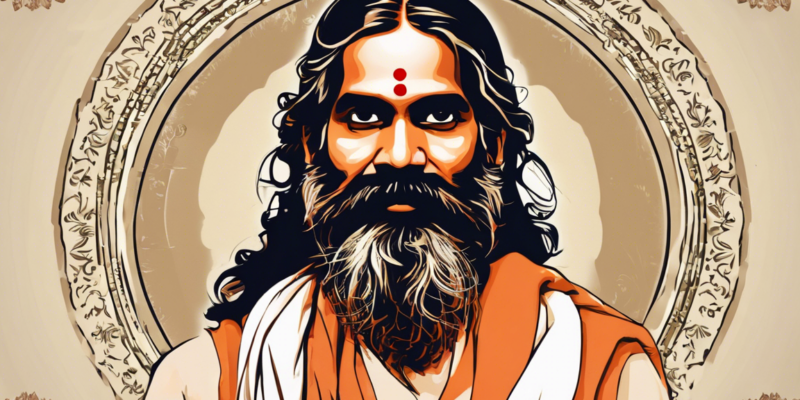In recent years, the name Ramdev Patanjali has become synonymous with controversies and legal battles, especially with the Supreme Court of India. The journey of Ramdev Patanjali from a renowned yoga guru to a successful entrepreneur and then to a legal litigant facing the highest court in the land has been nothing short of tumultuous. To understand the intricacies of the Ramdev Patanjali Supreme Court saga, we need to delve into the background of the key players, the legal issues at hand, and the implications of the disputes.
Background of Ramdev Patanjali
Ramdev, born as Ramkishen Yadav, is a prominent yoga guru in India known for popularizing yoga and Ayurveda. He founded the Patanjali Group along with co-founder Acharya Balkrishna, which has emerged as a major player in the Indian consumer goods market, offering a wide range of products from natural medicines to food items.
Legal Battles and Supreme Court Involvement
The legal troubles for Ramdev and Patanjali began when the company faced allegations of misleading advertisements, unauthorized product approvals, and violation of labelling regulations. Several consumer complaints were filed against Patanjali products, raising concerns about their quality and efficacy.
As a result, Patanjali found itself embroiled in legal battles with regulatory authorities such as the Food Safety and Standards Authority of India (FSSAI) and the Advertising Standards Council of India (ASCI). These disputes escalated to the extent that the Supreme Court of India had to intervene to address the complex legal issues involved.
Key Legal Issues
-
Misleading Advertisements: One of the primary concerns raised against Patanjali was the alleged use of misleading advertisements to promote their products, especially in the healthcare and wellness sector.
-
Product Approvals: Questions were raised about the approvals and certifications obtained by Patanjali for its diverse range of products, including Ayurvedic medicines and food supplements.
-
Labelling Regulations: Non-compliance with labelling regulations, including inadequate disclosure of ingredients, nutritional information, and manufacturing details, became a focal point of contention.
Supreme Court Interventions
In response to the legal challenges faced by Ramdev Patanjali, the Supreme Court of India took cognizance of the matters and issued directives to address the issues raised. The apex court’s interventions aimed to ensure consumer protection, upholding the rule of law, and maintaining standards in the healthcare and FMCG sectors.
The Supreme Court hearings and rulings shed light on the complexities of the regulatory framework governing consumer goods, advertising standards, and product quality in India. The involvement of the judiciary in scrutinizing the actions of a high-profile entity like Patanjali underscored the importance of accountability and compliance in the business landscape.
Implications and Lessons Learned
The Ramdev Patanjali Supreme Court saga serves as a cautionary tale for businesses operating in highly regulated industries. It highlights the repercussions of flouting legal norms, ethical standards, and consumer trust. The case also underscores the significance of transparency, authenticity, and adherence to regulatory guidelines for long-term sustainability and reputation management.
Furthermore, the legal battles faced by Ramdev and Patanjali emphasize the need for continuous monitoring, self-regulation, and proactive compliance measures to mitigate legal risks and maintain corporate integrity. The experience of navigating through the legal labyrinth can potentially lead to organizational reforms, improved governance practices, and a more resilient business framework.
Frequently Asked Questions (FAQs)
- **What were the specific allegations against Patanjali in the Supreme Court cases?
-
The allegations ranged from misleading advertisements to non-compliance with product approvals and labelling regulations.
-
**Did the Supreme Court rulings impact Patanjali’s market presence and reputation?
-
The Supreme Court rulings brought scrutiny to Patanjali’s practices but also signaled a need for corrective actions and compliance measures.
-
**How did Ramdev Patanjali respond to the legal challenges and regulatory issues?
-
Ramdev Patanjali undertook initiatives to address the concerns raised, improve product standards, and enhance transparency in its operations.
-
**What lessons can other companies learn from the Ramdev Patanjali Supreme Court saga?
-
The importance of regulatory compliance, ethical advertising practices, and consumer protection should not be underestimated, and proactive measures must be taken to uphold industry standards.
-
**What impact did the Supreme Court interventions have on the broader FMCG and healthcare sectors in India?
- The Supreme Court interventions set a precedent for accountability, quality assurance, and legal compliance across the FMCG and healthcare sectors, impacting industry practices at large.
In conclusion, the Ramdev Patanjali Supreme Court saga serves as a reminder of the complexities and challenges faced by businesses in navigating the legal landscape while upholding ethical standards and consumer trust. By learning from the experiences of high-profile cases like this, companies can proactively enhance their governance mechanisms, ensure regulatory compliance, and foster sustainable growth in a competitive marketplace.




Comments